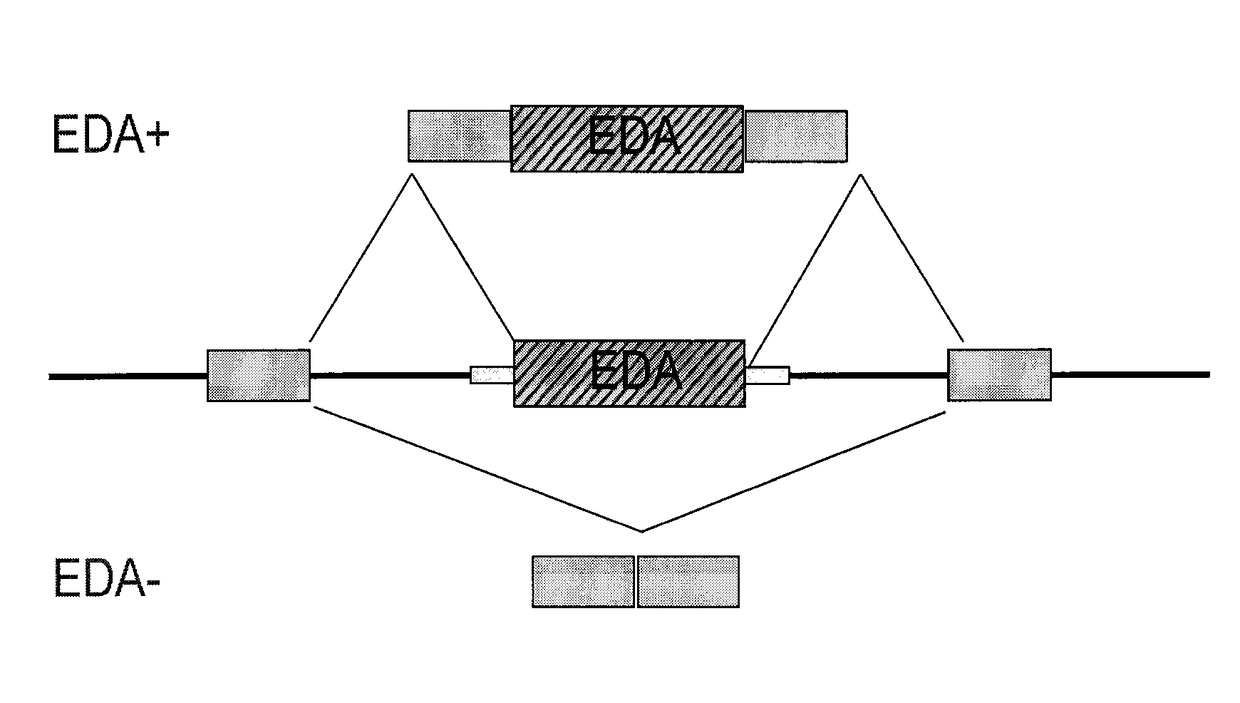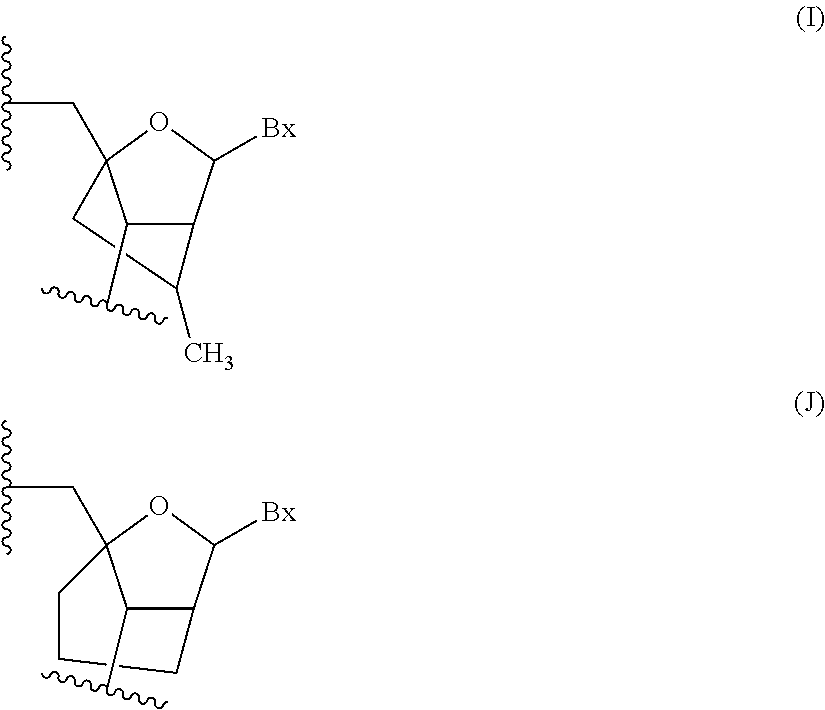Antisense compounds targeting genes associated with fibronectin
a technology of antisense compounds and fibronectin, which is applied in the field of antisense compounds targeting genes associated with fibronectin, can solve the problems of cleavage of mrna and interfere with polyadenylation, and achieve the effects of increasing fibronectin mrna without eda, promoting skipping, and increasing fibronectin protein without eda
- Summary
- Abstract
- Description
- Claims
- Application Information
AI Technical Summary
Benefits of technology
Problems solved by technology
Method used
Image
Examples
example 1
In vitro Screening of Human Fibronectin Splicing with Antisense Oligonucleotides in HKC-8 Cells
[0423]Antisense oligonucleotides were designed targeting a fibronectin nucleic acid and were tested for their effects on the alternative splicing of the fibronectin gene sequence in vitro. The newly designed antisense oligonucleotides in Table 1 were designed as uniform MOE oligonucleotides. Each nucleoside in the oligonucleotide has a 2′-MOE modification. The internucleoside linkages throughout each oligonucleotide are phosphorothioate (P═S) linkages. All cytosine residues throughout each oligonucleotide are 5-methylcytosines. “Start site” indicates the 5′-most nucleoside to which the oligonucleotide is targeted in the human gene sequence. “Stop site” indicates the 3′-most nucleoside to which the oligonucleotide is targeted human gene sequence. Each oligonucleotide listed in Table 1 is targeted to SEQ ID NO: 1 (the complement of GENBANK Accession No. NT_005403.14 truncated from nucleotide...
example 2
In vitro Screening of Human Fibronectin Splicing with Antisense Oligonucleotides in Primary Human Proximal Tubular Cells
[0426]The antisense oligonucleotides described in Example 1 were also tested for their effects on the alternative splicing of the fibronectin gene sequence in primary human proximal tubular cells (PTEC). Cultured PTEC cells were transfected using 2 μL, LipofectAMINE2000® / mL OptiMEM with 100 nM antisense oligonucleotide for 4 hours, the medium was removed and new medium added, left in culture overnight, and then treated with 0.1% BSA (vehicle) or 2.5 ng / mL TGFβ1 in 0.1% BSA for 24 hrs. RNA was isolated from the cells and levels were measured by conventional PCR. The ratio of EDA+FN to EDA−FN for the given oligonucleotide-treated cells to the ratio for the negative control-treated cells was calculated. Results are presented in Table 2 and indicate that treatment with antisense oligonucleotides targeted to the EDA region of fibronectin resulted in decreased expression...
example 3
Effect of Antisense Oligonucleotides Targeting the EDA Region of Fibronectin on TGFβ1 Induction of EDA+FN mRNA Expression in Primary Human Proximal Tubular Cells
[0428]Antisense oligonucleotides selected from the studies described above were tested for their effects on the alternative splicing of the fibronectin gene sequence in primary human proximal tubular cells (PTEC) treated with TGFβ1. One set of cultured PTEC cells were transfected using 2 μL LipofectAMINE2000® / mL OptiMEM with 100 nM antisense oligonucleotide. These cells were treated for 4 hours with antisense oligonucleotide; the medium was removed and new medium added; left in culture overnight; and then treated with 0.1% BSA (vehicle) or 2.5 ng / mL TGFβ1 in 0.1% BSA for 24 hrs. These cells were designated as pre-TGFβ1. Another set of cells were first treated with 0.1% BSA (vehicle) or 2.5 ng / mL TGFβ1 in 01% BSA for 24 hrs; then transfected using 2 μL LipofectAMINE2000® / mL OptiMEM with 100 nM antisense oligonucleotide for 4 ...
PUM
| Property | Measurement | Unit |
|---|---|---|
| length | aaaaa | aaaaa |
| size | aaaaa | aaaaa |
| molecular weight | aaaaa | aaaaa |
Abstract
Description
Claims
Application Information
 Login to View More
Login to View More - R&D Engineer
- R&D Manager
- IP Professional
- Industry Leading Data Capabilities
- Powerful AI technology
- Patent DNA Extraction
Browse by: Latest US Patents, China's latest patents, Technical Efficacy Thesaurus, Application Domain, Technology Topic, Popular Technical Reports.
© 2024 PatSnap. All rights reserved.Legal|Privacy policy|Modern Slavery Act Transparency Statement|Sitemap|About US| Contact US: help@patsnap.com










